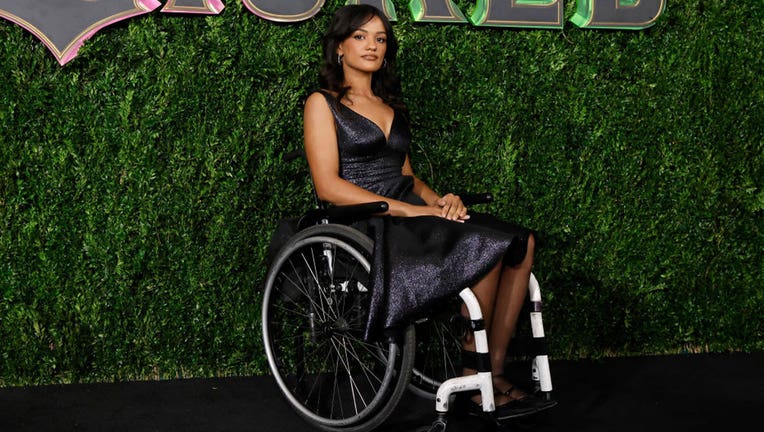'Disability is not fictional': 'Wicked' star Marissa Bode slams ableist jokes over her role as Nessarose

Marissa Bode attends the NYC premiere of "Wicked" at Museum of Modern Art on November 14, 2024 in New York City. (Photo by Taylor Hill/FilmMagic)
In a candid address to her TikTok followers, Marissa Bode, who recently starred as Nessarose in the new cinematic adaptation of "Wicked," boldly confronted the flurry of ableist jokes and hate messages that have marred her groundbreaking performance.
Bode, who made history as the first disabled actress to take on the role, expressed appreciation for the public's reception of the film but highlighted a concerning trend in the reaction towards her character's portrayal. "All the love for the movie... It's... I mean, I'm a fan, obviously," she began.
She underscored that while it's perfectly acceptable to dislike the fictional character, the line must be drawn when it involves jests about her actual disability.
"Aggressive comments and jokes about Nessa's disability itself, is deeply uncomfortable because disability is not fictional," Bode said in the video. "At the end of the day, me, Marissa is the person that is still disabled and in a wheelchair, and so it is simply a low-hanging fruit that too many of you are comfortable taking."
Bode relayed her unsettling personal experience with such ridicule, both before and after her role in "Wicked," revealing comments such as "stand up for yourself," as disheartening examples of the disparagement she faced. "And when these jokes are being made by non-disabled strangers with a punchline of not being able to walk, it very much feels like laughing at rather than laughing with," she disclosed, her voice tinged with emotion.
Bode also expressed concern for younger disabled individuals who may be affected by similar rhetoric online. "I’m worried that a younger version of myself is somewhere on the internet and is harmed by these comments," she said.
The gravity of the issue was palpable as Bode confessed how the fear of backlash nearly silenced her. The broader concern she highlighted was the torrent of ableist abuse witnessed by her disabled peers online. "I have seen firsthand what has happened to my disabled peers who are outspoken online when it comes to calling out ableism," she explained, showing solidarity with those who have suffered similar fates.
Ableism is discrimination or prejudice against people with disabilities, rooted in the belief that able-bodied and neurotypical individuals are superior, and that those with disabilities are "in need of fixing." Ableism was demonstrated in the movie "Wicked," when Miss Coddle, played by actress Keala Settle, assumed that Nessa needed someone to push her wheelchair, rather than having the ability to do it herself. This action triggered Elphaba, who screamed "she doesn't need you to do that," before she unintentionally used her magic when dropping Nessa off at Shiz. Ableism can manifest in attitudes, systems, and practices that marginalize, exclude, or devalue those with disabilities.
In a plea for empathy and understanding, Bode advocated for active listening and kindness towards those affected by such jokes, acknowledging the progress she has made in coping with ignorance but worrying for others who might be more vulnerable. "Please be kind," she implored.
Wrapping up her message, Bode reaffirmed one of "Wicked's" central themes - the ability to listen to and understand one another, expressing her hope that this tenet would resonate and be enacted by all.
The video, which serves as a powerful call for more sensitive and inclusive discourse, has already generated significant engagement from viewers and has sparked a broader conversation on the importance of disability representation and respect in the entertainment industry and beyond.
The Source: This article was written based on statements from Marissa Bode, information from the movie "Wicked," and knowledge about ableism as a disability advocate.

